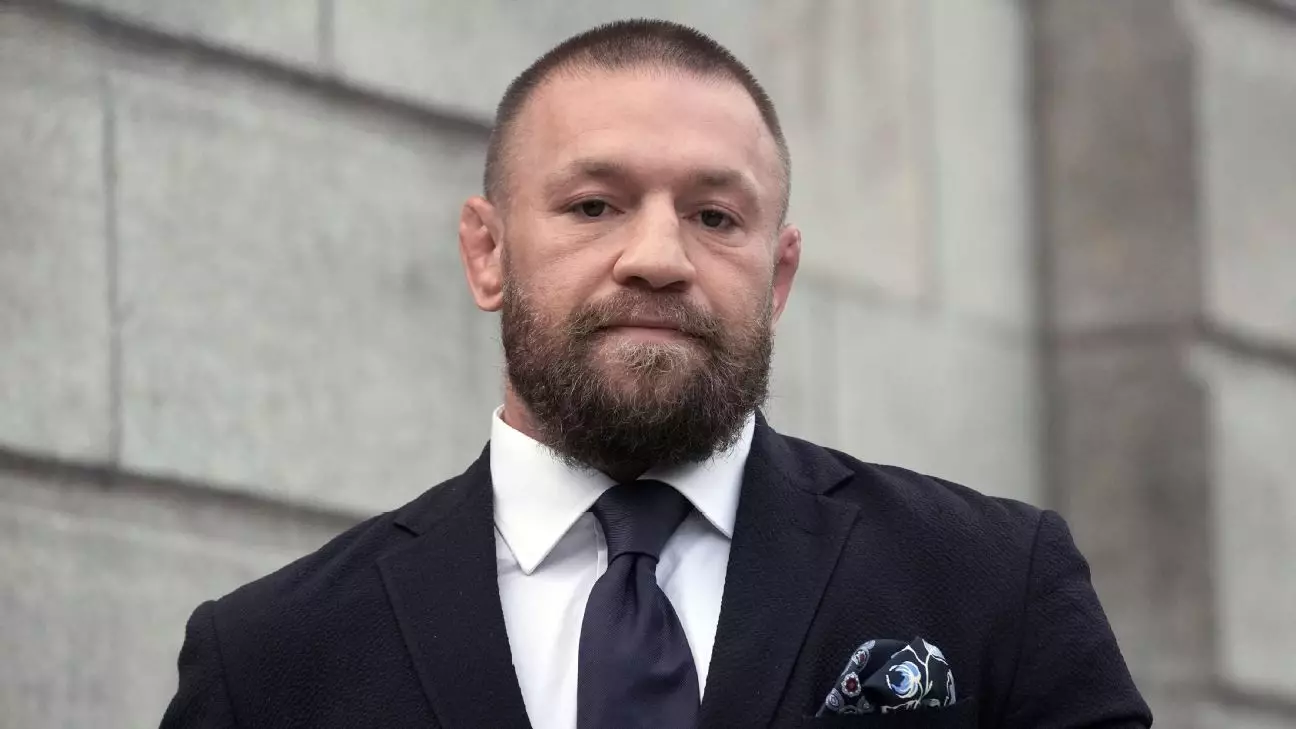The world of mixed martial arts has been no stranger to controversies, but the recent ruling in a civil case against UFC star Conor McGregor takes this complexity to a new level. Accusations of sexual assault have marred McGregor’s reputation, and a jury’s recent decision reflects the tense interplay between celebrity, accountability, and the legal system. The High Court in Dublin ordered McGregor to pay 248,000 euros, approximately $257,000, to a woman who claimed he assaulted her during a 2018 hotel encounter. This scenario presents an opportunity to analyze the repercussions for McGregor, the challenges faced by his accuser, and the broader implications of such allegations in the realm of sports and society.
The specifics of the case highlight a troubling narrative. According to the woman, the incident occurred after meeting McGregor at a Christmas party in Dublin. The accusations include severe actions, such as being choked and threatened to the extent that she felt her life was in danger. The testimony presented during the trial underscores the traumatic aftermath; paramedics described the extent of her injuries as unlike anything they had seen before. These details not only paint a harrowing picture but also prompt discussions about domestic violence and the psychological impacts of such experiences.
The woman’s lawyer emphasized that she never aimed to portray herself as a saint, highlighting a problematic stereotype often directed at victims of sexual violence—where their past behaviors are scrutinized, to rationalize or dismiss their claims. By candidly stating that she was seeking a good time, only to end up in a nightmare, the trauma of her experience is illustrated in a raw and poignant manner.
In stark contrast, McGregor has adamantly denied all accusations, asserting that the sexual interaction was consensual. His lawyers attempted to sway the jury by addressing potential bias against McGregor, suggesting that personal feelings about the fighter should not influence the case’s outcome. This presents a critical element in the judicial process—how public perception of an individual can impact legal proceedings. In professional sports, especially among well-known athletes, loyalty and adoration from fans often cloud judgment and complicate discussions surrounding accountability.
As McGregor’s defense unfolded, he characterized the encounter in wholly different terms, suggesting that any physicality was merely a product of vigorous, consensual interaction. His claims, framed as lies, seek to deconstruct the narrative woven by the complainant. But as powerful as celebrity narratives can be, they often serve to overshadow the voices of those who seek justice and validation after experiencing trauma.
The jury—a mix of both women and men—ultimately sided against McGregor’s account. This decision points to a shifting societal perspective on issues of consent and accountability, particularly in the sports arena, where previously celebrated figures are increasingly subject to scrutiny. The fact that the jury was able to look past potential bias and focus on credible evidence and emotional testimonies indicates a growing recognition of the need for structural change in how such allegations are resolved.
The ruling serves not just as financial restitution for the victim but also as a broader statement about the validity of women’s experiences in confrontations with powerful figures. Other women in similar situations may find that courage and resilience are met with support rather than skepticism.
While the financial penalty levied against McGregor is significant, it raises further questions about the implications of this case on his career as well as the UFC’s image. Following his leg injury in July 2021, McGregor’s in-ring prowess has dwindled, and now, this legal setback may further impede his ability to make a meaningful comeback in the sport. The narrative surrounding him is shifting from that of a champion fighter to a controversial figure embroiled in serious allegations.
The UFC, meanwhile, finds itself navigating a precarious balance between celebrating entertainers and holding them accountable for their actions. With McGregor at the center of this situation, the organization must assess how to address these allegations without compromising the essence of its brand.
McGregor’s case encapsulates a complex web of celebrity culture, justice, and systemic change. It is essential for society to support victims while continuing to scrutinize powerful figures, ensuring accountability transcends fame. The road ahead may be challenging for both the complainant and McGregor, as the broader implications of this ruling will echo throughout both the sporting world and beyond.


Leave a Reply